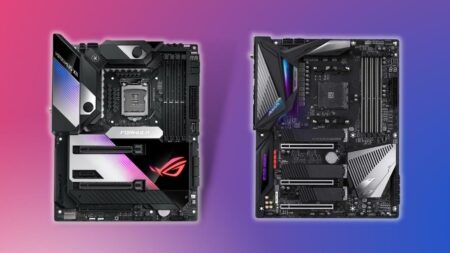As we continue to push the boundaries of what is possible with graphics processing units (GPUs), we are finding that there are some applications where they just can’t get any hotter.
In this blog post, we will explore the limits of how hot a GPU can get before it starts to experience problems.
How Hot Is Too Hot for GPU?
We all know that GPUs can get pretty hot when they are under load. But just how hot is too hot?
The answer to this question isn’t as simple as you might think. It turns out that the answer depends on the specific GPU and the application it is being used for.
For example, some high-end gaming GPUs can safely operate at temperatures up to 90°C. However, for other applications such as mining cryptocurrencies, the GPUs may need to be run at lower temperatures to avoid overheating.
In general, it is safe to say that most GPUs can operate at temperatures up to 80°C without any problems. Beyond that, you start to enter into territory where the GPU may start to throttle itself to avoid overheating.
Throttling is when the GPU reduces its clock speed and/or voltage in order to stay within a safe temperature range. This can lead to a decrease in performance as the GPU is not able to operate at its full potential.
So, if you are looking to get the most out of your GPU, you will want to avoid running it at temperatures that exceed 80°C.
Of course, there are always exceptions to the rule. Some GPUs are designed to run at higher temperatures and can even be overclocked to push them beyond their default limits. But for the vast majority of GPUs, 80°C is the safe limit.
So, if you are noticing that your GPU is running hot, there are a few things you can do to help keep it cool.
How Can I Keep My GPU Cool?
First, make sure that your computer case has good airflow. This will help to ensure that the hot air from the GPU is being dissipated quickly and not recycled back into the case.
Secondly, consider using a fan or water cooling system to help keep the GPU cool. These can be very effective at keeping the temperature down, especially if you are overclocking the GPU.
Finally, make sure that you have good thermal paste applied to the GPU. This will help to conduct heat away from the GPU and into the heatsink more effectively.
If you follow these tips, you should be able to keep your GPU running cool and avoid any problems.
What Are the Consequences of Your GPU Overheating?
If your GPU starts to overheat, the first thing that you will notice is a decrease in performance. The GPU will start to throttle itself in order to stay within a safe temperature range, which can lead to lower frame rates and longer render times.
In extreme cases, the GPU may shut down completely in order to prevent damage. This can lead to lost work and even data loss, so it is important to avoid letting your GPU overheat.
How Can I Lower My GPU’s Temperature?
When your GPU is having difficulty dissipating its generated heat, it can be tricky to find the direct source of the problem. There are many factors that can inhibit the proper function of a GPU’s cooling system.
Fortunately, there are a few steps you can take to help lower your GPU’s temperature. If the temperature of your GPU is still high, try opening up the case to see if that helps. Sometimes the heat can get trapped inside by the panels’ insulation.
In other cases, the problem may be with the thermal paste that is used to conduct heat from the GPU to the heatsink. If the paste is old or not applied correctly, it can cause problems. Try reapplying the thermal paste and see if that helps.
Finally, make sure that your computer case has good airflow. If the hot air from the GPU is not being dissipated quickly, it can lead to higher temperatures. Consider adding more fans or even water cooling to help keep the GPU cool.
